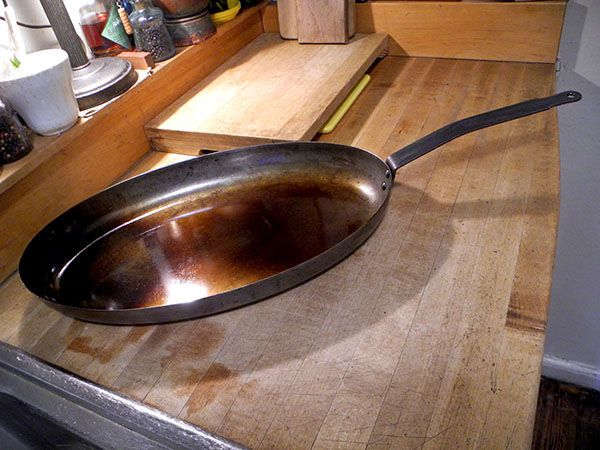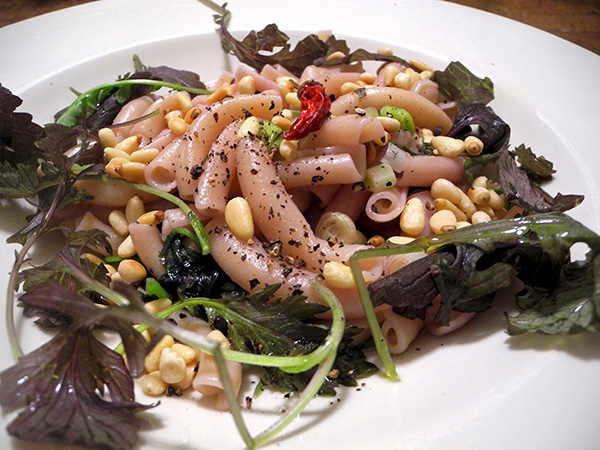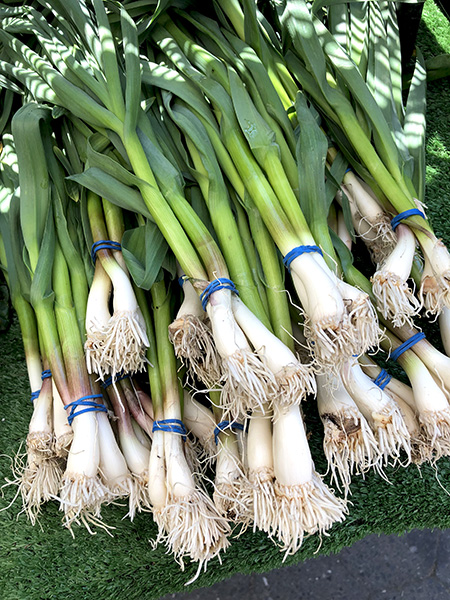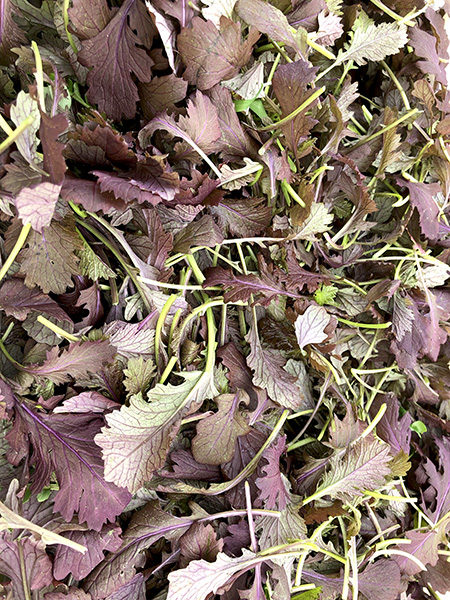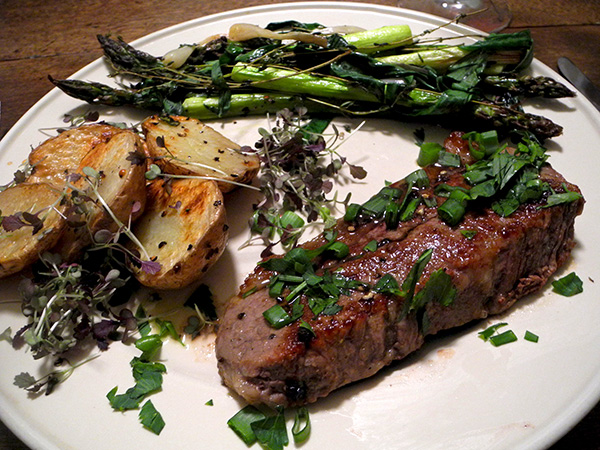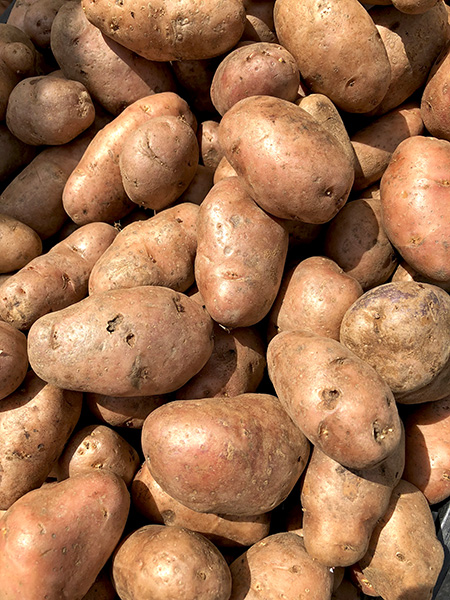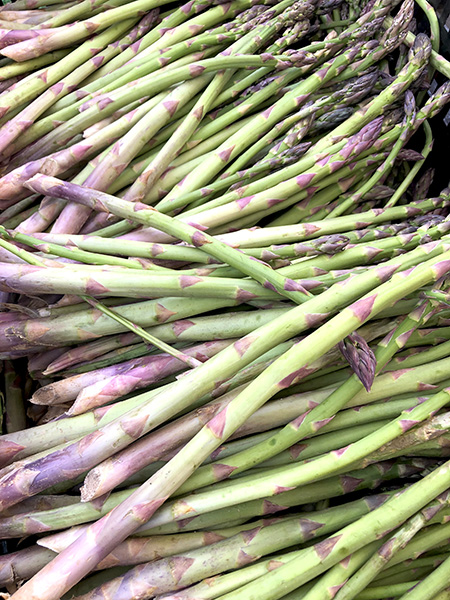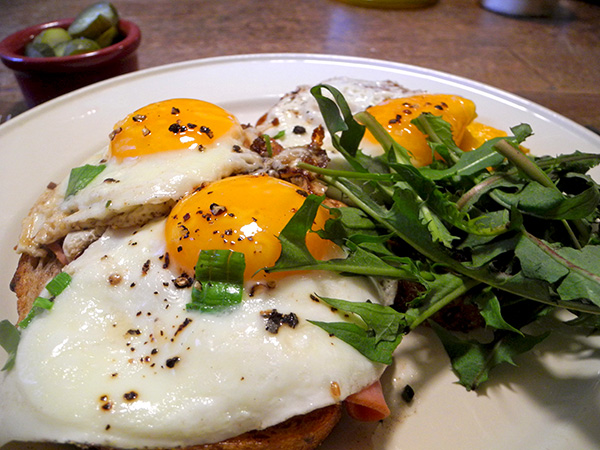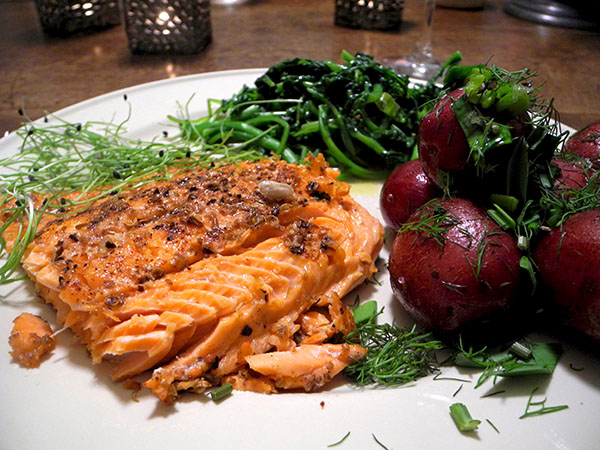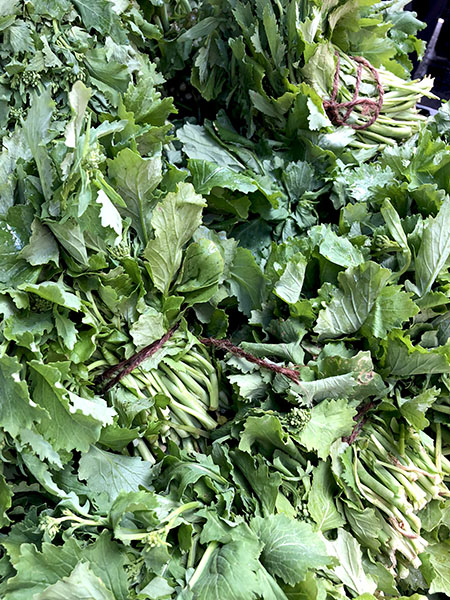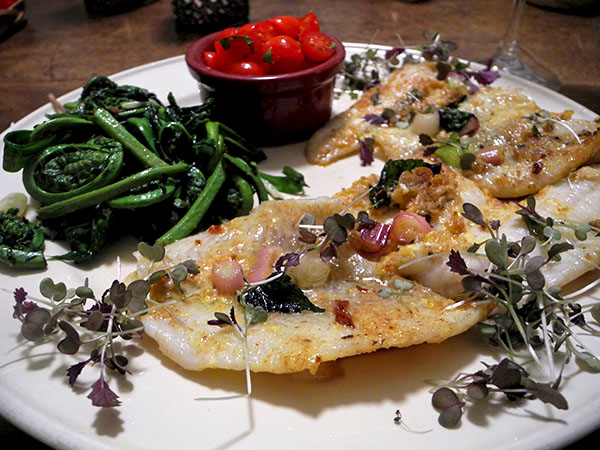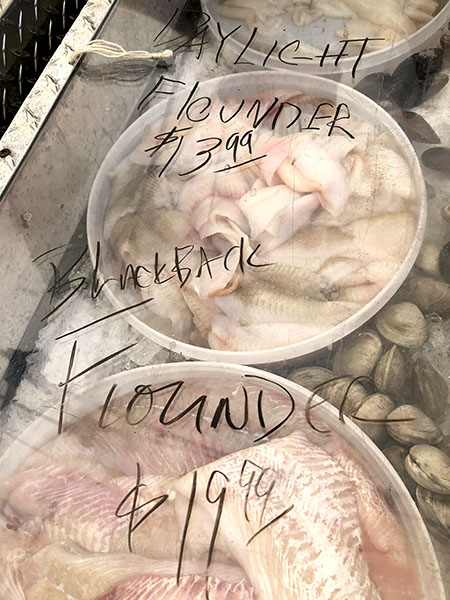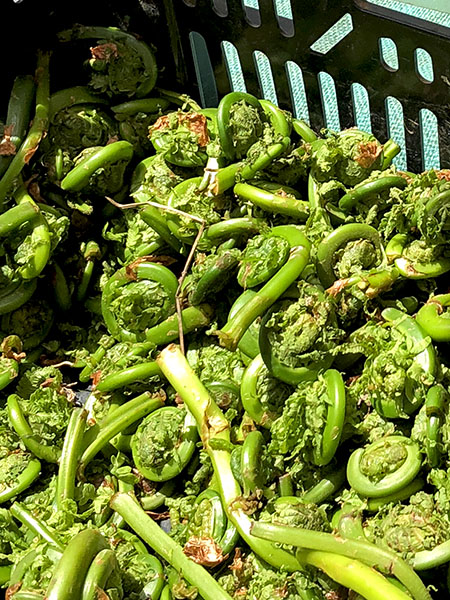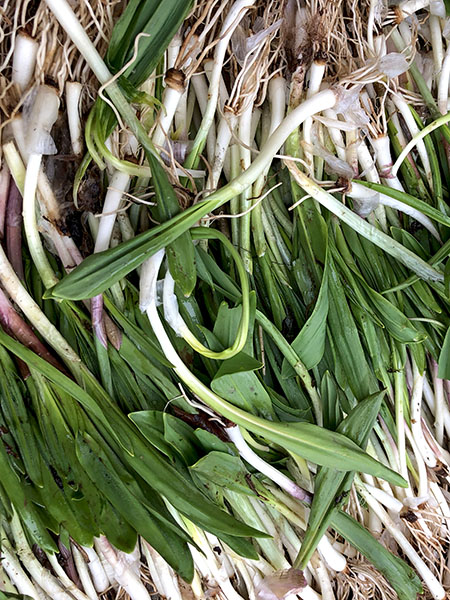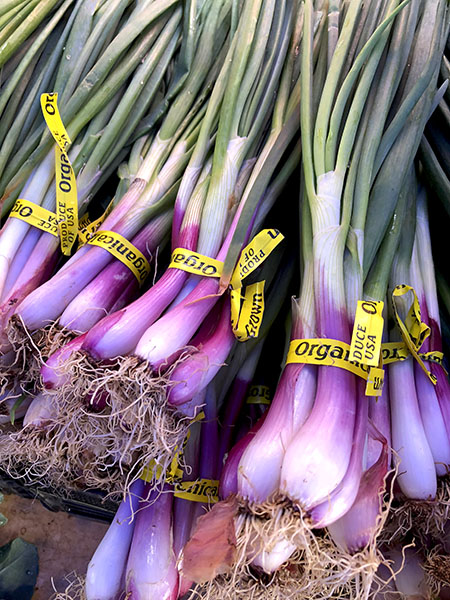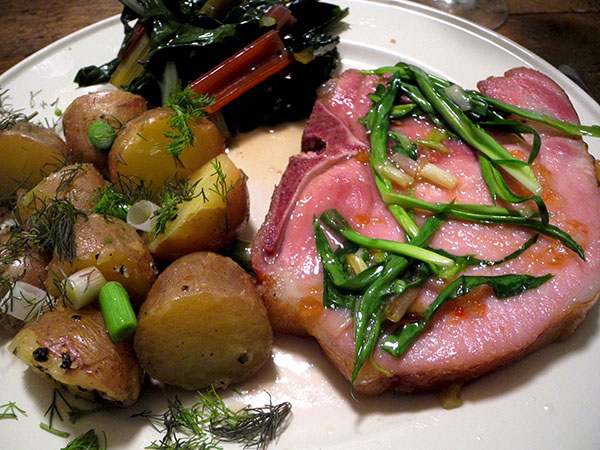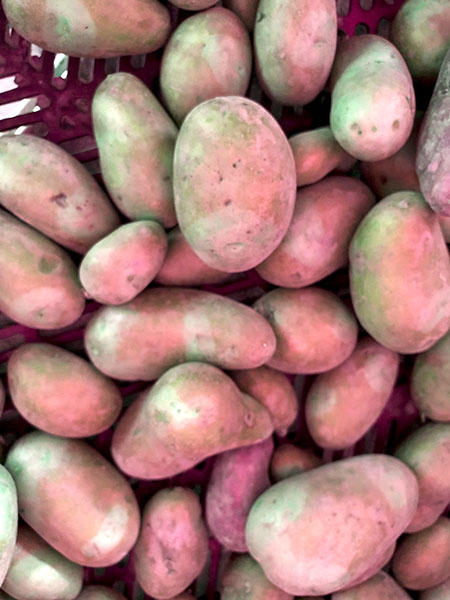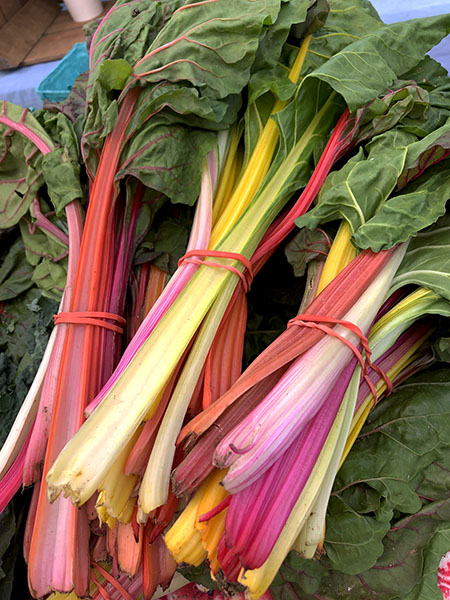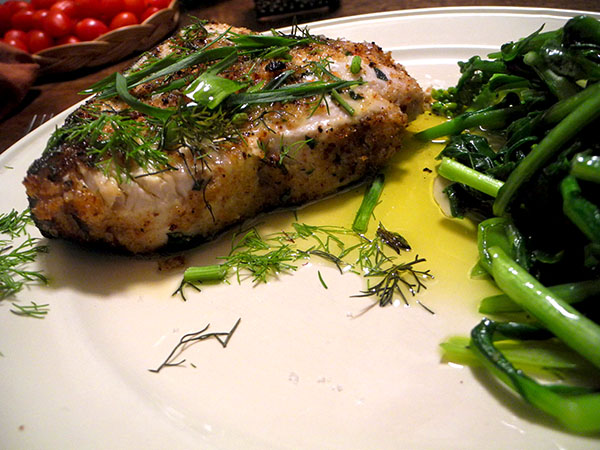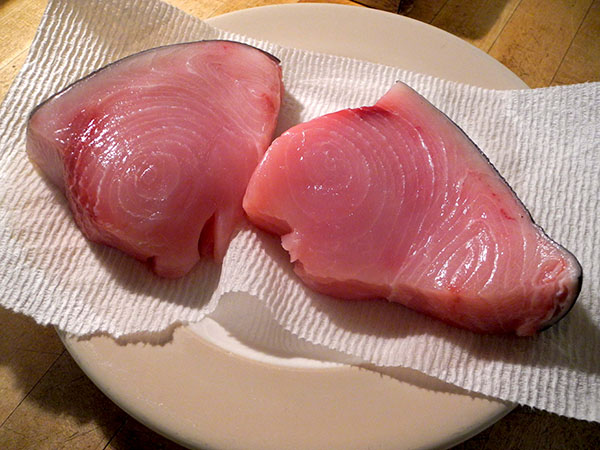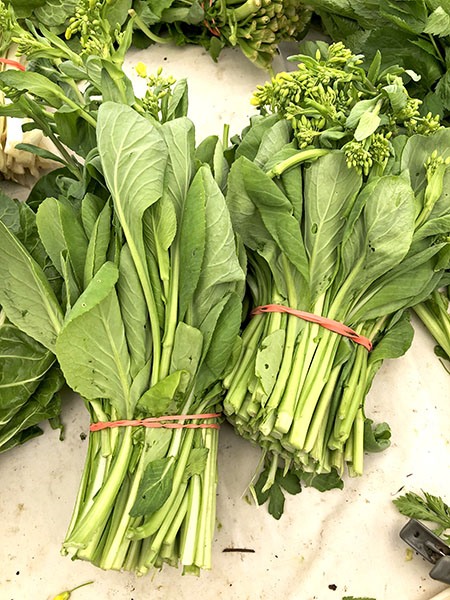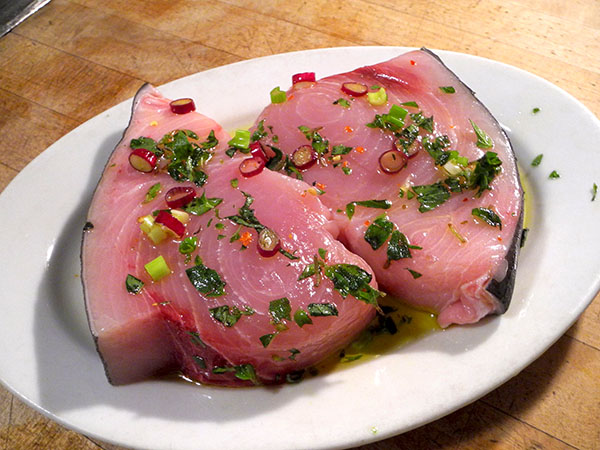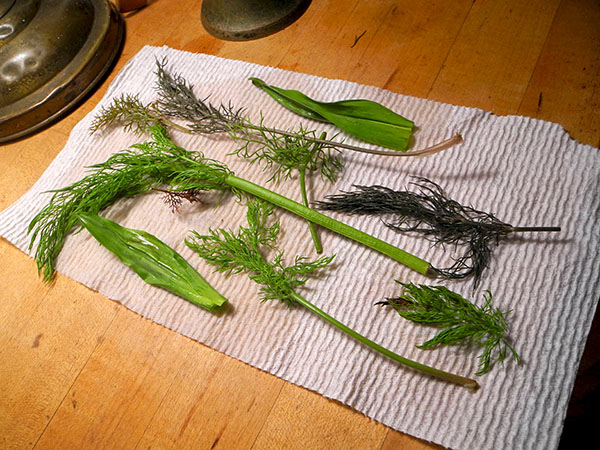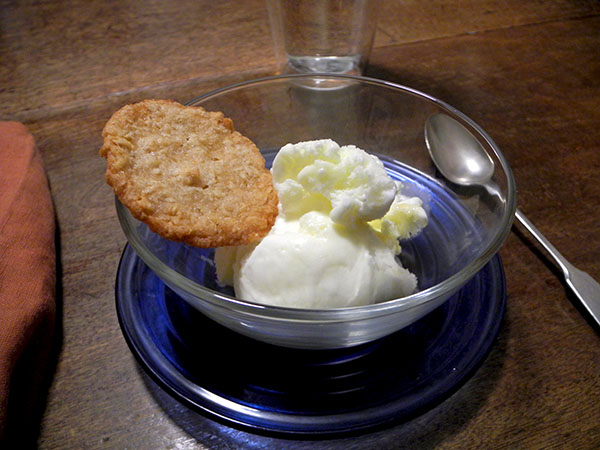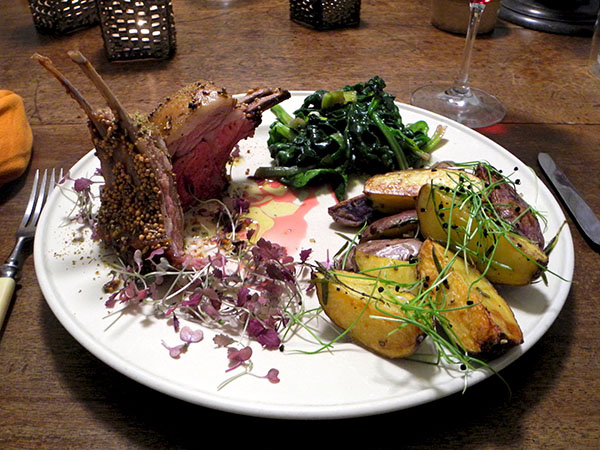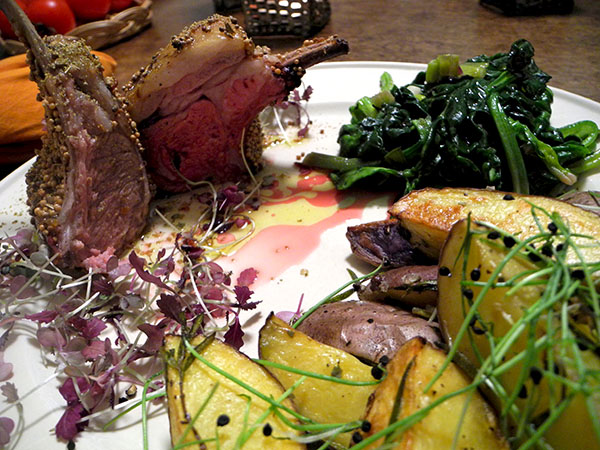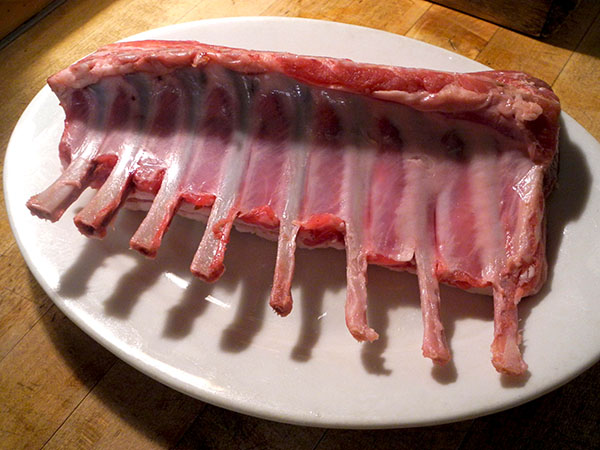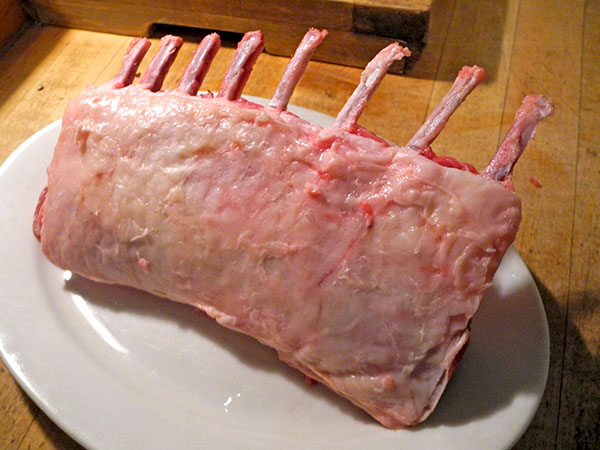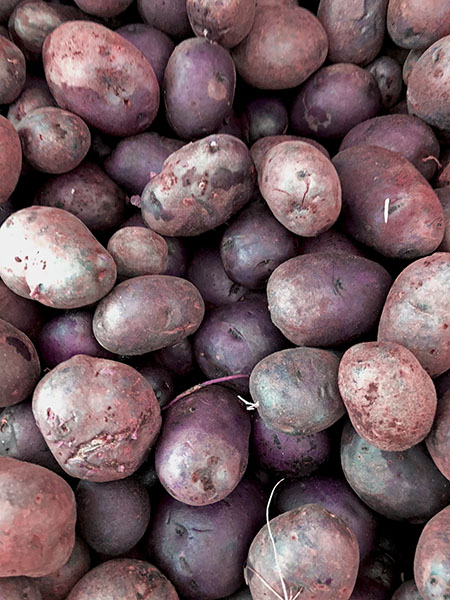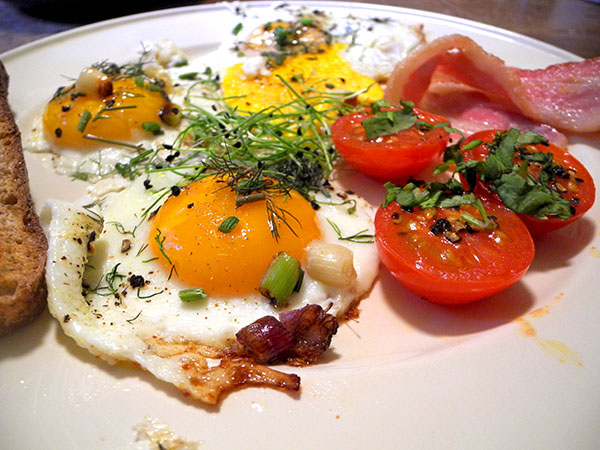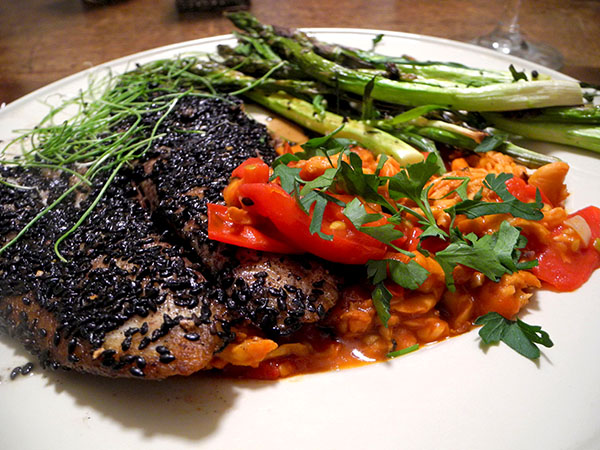
It was wonderful.
And it tasted as spectacular as it looks.
Interestingly, it was assembled with huge portions of serendipity.
The first thing I did at the Union Square Greenmarket yesterday was buy the second-last bunch of the first asparagus I had seen this season, inside the first farmer’s stall just inside the entrance.
My next stop was the fishmonger’s, where I picked out 2 beautiful fillets of very fresh flounder, the perfect size for a meal for two, and also for the large oval steel pan that I would be using for the first time ever.
I hadn’t intended to buy mushrooms that day, but I wanted to show Joe Rizzo of Blue Oyster Cultivation pictures of what had become of the ones I had picked up last week (seen in this meal and this). There I stopped dead in my tracks when I saw what he had on the table that day.
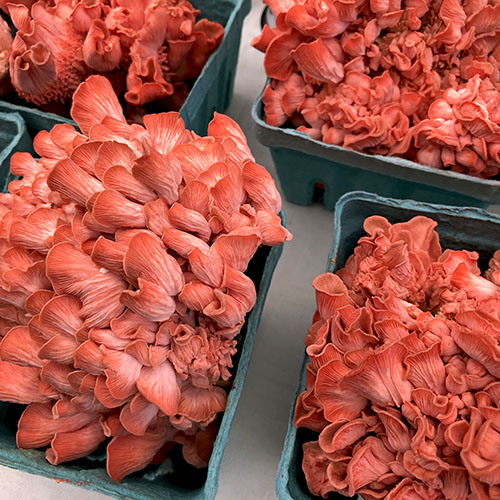
These pink oyster mushrooms had to become a part of the meal I was assembling in my head. Joe told me a lot about them, including the fact that the color turns slightly brown when cooked, and that they should be cooked longer than other mushroom varieties normally require. What he didn’t tell me was how extraordinarily delicious they were, or that they would end up tasting a bit like, and looking much like, cooked shellfish (lobster, or, better, crawfish), at least when prepared with the recipe which became my next happy chance.
Tomatoes too!
Pierre Franey was a legend while he lived, and even in death (he died in 1996, at 71, shortly after suffering a stroke while giving a shipboard cooking demonstration aboard the QE2). He seems to have had a way of making superb meals accessible to home cooks, and this particular (undated) recipe, ‘Flounder Filets With Mushrooms and Tomatoes’, which I found while searching ‘flounder’ and ‘mushrooms’, would support that proposition.
Finally, I had a decent supply of spring ramps to recreate a recipe for asparagus that I had used a year ago, and just the right amount of firm, ripe sort-of-local tomatoes (substituting for Franey’s “4 ripe plum tomatoes”) to assemble his entrée, plus a few extras for the whole, like spring garlic, herbs, a micro green garnish, all of it from the bounty of local farmers at the Greenmarket.
The plate looks both traditional and modern, and that pretty much describes what the meal tasted like. Is it French? Where does it fit in the chronology of culinary fashion? The questions are interesting, but not really very important, although I think that with a very few refinements, and if the size of the entrée were hugely reduced until it occupied only the center of the plate, it could pass for haute cuisine (par un amateur). But then I’d have to prepare more courses.
- *this is my slightly-altered arrangement of Pierre Franey’s original recipe: 3 ounces of pungent pink oyster mushrooms (aka ‘pleurotus djamor‘, or ‘pink flamingo oyster mushrooms’) from Blue Oyster Cultivation, “cut into small cubes” (Franey), added to a large antique, high-sided copper pot in which one tablespoon of olive oil and one tablespoon of butter had been heated, sautéed over medium high heat until cooked medium brown (I’m acknowledging Franey’s admonition to “cook briefly”, but apparently these particular mushrooms have to be cooked beyond the stage most others would, or they will have a sour taste), 2 teaspoons of chopped spring garlic from John D. Madura Farm mixed in and softened but not browned, followed by 8 Backyard Farms Maine ‘cocktail tomatoes’ from Whole Foods Market, each cut into 8 pieces, one tablespoon of juice from an organic Whole Foods Market lemon, 2 sprigs of thyme from Stokes Farm, some sea salt and freshly ground black pepper to taste, the pot removed from heat and kept warm while two rinsed and drained 7-ounce flounder fillets from P.E. & D.D. Seafood, first seasoned on both with salt and pepper, were dipped, both sides, onto a platter spread with 4 or 5 tablespoons of black sesame seeds (I had no tan seeds in the spice cupboard, and as it turned out, for both taste and aesthetic reasons, I’m glad I didn’t), laid inside a very large, seasoned 17-inch steel vintage oval skillet*, over high heat without crowding, once another tablespoon each of olive oil and butter had been heated but not allowed to smoke, the fish cooked over high heat, turning once, “until fillets and seeds are lightly browned on both sides” (this is the catch if you’re using black seeds, so I could only use my judgment here; I probably cooked them only 4 minutes, but the time would vary depending on the thickness of the fillets), arranged on 2 plates and partially covered with the reserved warm sauce that I then sprinkled with chopped parsley from Phillips Farm, the fillets themselves garnished with micro scallions from Two Guys from Woodbridge
- *some 18 or so asparagus from Central Valley Farm (10 to 12 ounces total), of various sizes, plus the white sections (green leaves removed) of an equal number of early-season ramps (the bulbs grow larger as their short season advances through the spring) from Mountain Sweet Berry Farm, along with a handful of thyme branches from Stokes Farm, a little more than a tablespoon of olive oil, a little sea salt, and a bit of freshly-ground black pepper, all rolled along the surface of a large Pampered Chef unglazed ceramic pan, roasted in a 425º oven for about 25 minutes, but toward the end of that time the reserved green ramp leaves, roughly-sliced, were thrown onto the top and pushed around a bit just before the asparagus and ramp white sections had finished cooking, and when all was cooked the asparagus mix was removed to 2 plates and drizzled with juice from an organic Whole Foods Market lemon
- the wine was a California (Sonoma) white, Matt Iaconis Chardonnay Napa Valley 2016, from Naked Wines
- *the music was a magnificent performance of Schubert’s Piano Quintet in A major, D. 667 ‘The Trout’, with the performers Anne-Sophie Mutter, Daniil Trifonov, Hwayoon Lee, Maximilian Hornunz, and Roman Patkoló (these players obviously really like doing this, and they’re very, very good at it)
*
